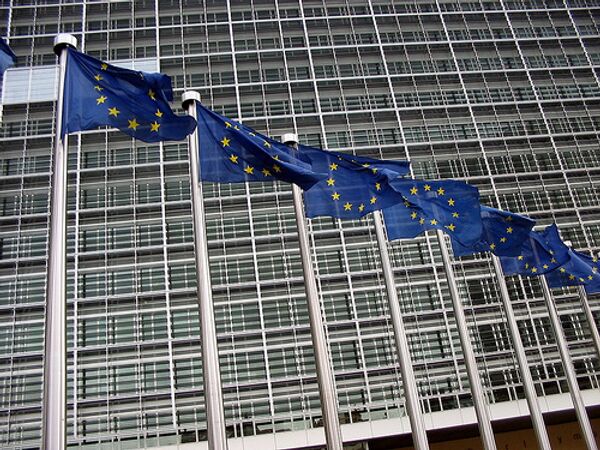The EU reiterated on Tuesday that Ukrainian President Viktor Yanukovych’s visit to Brussels had not been cancelled but postponed and that it was committed to further cooperation with Ukraine.
Yanukovych was due to arrive in Brussels to meet with European Commission head Jose Manuel Barroso and EU Council chief Herman Van Rompuy on Thursday to discuss outstanding details of an association agreement.
"We are continuing to work with Ukraine," EU Commission spokeswoman Karolina Kottova said.
She dismissed the view that the EU was pushing Ukraine into Russia’s arms, adding that the EU was awaiting another opportunity to discuss important matters on the EU-Ukraine agenda.
The EU is committed to an association agreement with Ukraine but it was unlikely to be signed during an EU-Ukraine summit set for mid-December, she said.
Earlier on Tuesday EU spokeswoman Maja Kocijancic said the visit was postponed "until a later occasion when conditions would be more conducive to make progress on bilateral relations."
Ukraine’s Foreign Ministry confirmed the postponement, but said it was initiated by Kiev, not by Brussels.
Ministry spokesman Oleksandr Dikusarov said that Ukraine was interested in resuming dialog with the EU “in the very near future.”
The cancellation comes a week after Yanukovych’s political rival Yulia Tymoshenko received a seven-year prison sentence on charges of abuse of office.
The verdict has drawn worldwide condemnation.
The EU and the United States have described the trial as politically motivated, and Moscow said it had a “clear anti-Russian subtext.”
The EU move comes despite Yanukovych’s remarks last Thursday that Tymoshenko’s sentence might be commuted.
However, on Monday Yanukovych said he was ready to postpone the signing of an association agreement with the EU due to its position on Tymoshenko, which some experts saw as an indication that the former prime minister would remain in jail.
“Yanukovych is not ready to swap Tymoshenko for a free trade and association deal with the EU. To him, Tymoshenko’s freedom is a more serious problem than the prospect of foreign trade integration,” Vadim Karasyov, director of the Institute of Global Strategies, said.
Tension between Ukraine and the EU over the Tymoshenko case might nudge Ukraine toward Moscow, Volodymyr Fesenko, head of the Penta Center for Applied Political Studies, said.
“The moment Kiev realizes there is no new agreement with the EU, Ukraine will take a greater interest in seeking close cooperation with Moscow, including on the Customs Union,” he added.
Kiev’s rapprochement with Russia, Belarus and Kazakhstan could jeopardize Ukrainian exporters who would sustain losses from violating WTO rules, he said.
"Some of those around him [Yanukovych] are aware of the risks involved while others are apparently trying to convince him that the EU will eventually be prepared to yield to Ukraine,” he added.


